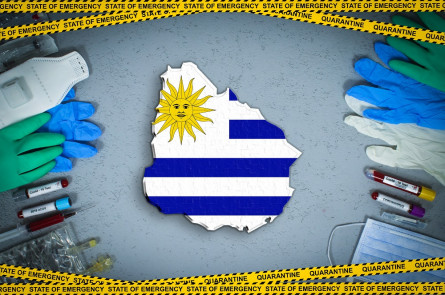Uruguay relied on the strong base of its social security system
Unlike most other countries in the region, the coverage of the social security system is high and "income transfers became a stable part of the social protection architecture", Cecilia Rossel and María Gutiérrez write in their report. Therefore, the levels of poverty and informality were comparatively low before the start of the pandemic.
Due to the relative strength of the Uruguayan social protection system, the response to the side effect of the pandemic were predominantly making existing policies more flexible and broadening their coverage.
- Employees aged 65 and above were allowed to take paid leave from work
- Health insurance coverage was made more flexible and was extended for unemployed
- Cash transfers in the food stamp programme and family allowances were doubled for three months
- An emergency food basket programme was established
- A subsidy was introduced for artists who could not work due to the restrictions
- Opening hours of homeless shelters were extended
- Deferment of mortgage payments, taxes, and social security contributions
Many months into the pandemic, "the political discussion about the government’s social response has focused on the provision of non-contributory transfers to the most vulnerable", Cecilia Rossel and María Gutiérrez write in their report. "The opposition has considered the measures insufficient and has even proposed the creation of a basic emergency income to minimize the effects of the crisis."
Read the full report: Uruguay’s Social Policy Response to Covid-19: Strong Fundamentals, Selective Expansion
See the other parts of the series: CRC 1342 Covid-19 Social Policy Response Series














